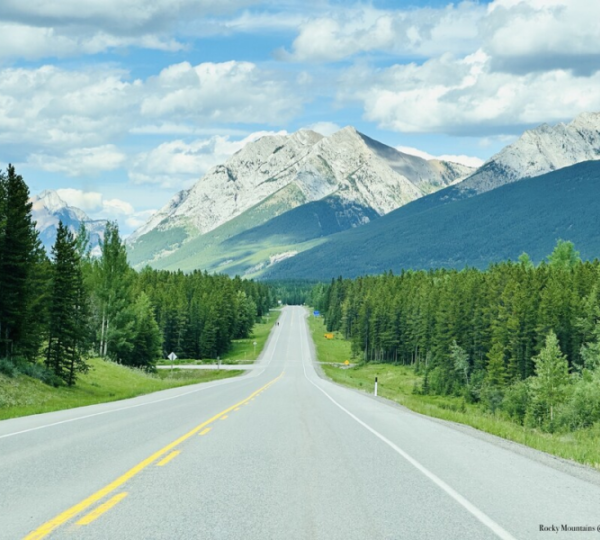In its right sense, tourism is one of nature’s most effective tools to bring about positive change. It can generate employment, promote and pass on culture, and act as a builder of the economy of different regions in the world. However, IMO, IF. What is more, irresponsible approach to tourism brings certain disadvantages and negative effects to the environment, cultural consequences and economic imbalance. So, it is actually more important than before to support different local communities through the ethical means of tourism.
This blog post will provide insights into how you, as traveler, can contribute to the enhancement of destinations that you visit. Magnifying challenge 1: Explicating the effects of tourism to communities We then look at the definitions of ethical tourism, and guidelines on how to make your tourism have positive effects on the communities you visit, and other practical suggestions.

Understanding the Impact of Tourism on Local Communities – Supporting Local Communities
Tourism is, in a way, both a boon as well as a bane. On one hand, it generates sustainable economic development and exchange of culture; On the other hand, it gives rise to some difficulties to the societies. It is equally important that these impacts are well understood in order to practice ethical tourism.
Economic Impacts
Tourism can be a significant driver of economic growth, creating jobs and generating revenue for local businesses. However, it’s important to ensure that this economic benefit is distributed fairly and sustainably.
- Positive Impacts:
- Job creation in various sectors like hospitality, transportation, and handicrafts.
- Increased income for local businesses, such as restaurants, shops, and tour operators.
- Improved infrastructure development, including roads, airports, and public transportation.
- Potential Negative Impacts:
- Inflation and increased cost of living for local residents.
- Over-dependence on tourism, making the economy vulnerable to external factors like economic downturns or natural disasters.
- Leakage of tourism revenue, where profits flow out of the local community to international corporations or investors.
Social and Cultural Impacts
Tourism can foster cultural exchange and understanding, allowing travelers to learn about different cultures and traditions. However, it’s crucial to approach cultural tourism with sensitivity and respect.
- Positive Impacts:
- Preservation and revitalization of cultural heritage, including traditional crafts, music, and dance.
- Increased awareness and appreciation of different cultures.
- Opportunities for cross-cultural exchange and understanding.
- Potential Negative Impacts:
- Commodification of culture, where traditions and rituals are turned into tourist attractions, potentially losing their authenticity.
- Disruption of traditional ways of life, as communities adapt to cater to tourist demands.
- Cultural appropriation, where elements of a culture are adopted or used inappropriately by outsiders.
Environmental Impacts
Tourism can contribute to environmental conservation efforts by raising awareness and generating funding for protected areas. However, it’s important to minimize the environmental footprint of tourism.
- Positive Impacts:
- Support for conservation efforts and protected areas.
- Increased awareness of environmental issues.
- Development of eco-tourism initiatives that promote sustainable practices.
- Potential Negative Impacts:
- Increased pollution, including air pollution from transportation and water pollution from waste disposal.
- Strain on natural resources, such as water and energy.
- Habitat destruction and loss of biodiversity due to development and infrastructure projects.
Key Principles of Ethical Tourism
Okay we looked at potential positive and negative effects associated with tourism let us look at the key principles in ethical tourism/travel. We are to apply all of these in order to make sure that our traveling is benefiting the locals and cultural and natural heritage.
Then and now the dominant culture and traditions of the native societies are remarkable.
However, when it comes to ethical tourism, the must respect local culture and traditions of a certain area is prescribed. This entails issues to do with how we conduct ourselves, the clothes we wear and how we relate with the people in the communities of the respective countries.
- Learn basic phrases in the local language: A small number of words such as hello, thank you and please are enough to display courtesy and winning the heart of local people.
- Dress modestly: Respect the local cultures and dressing codes especially where you find that the dressing customs of most people is conservative or most people show a lot of reverence for religious authorities.
- Ask permission before taking photos: It is very important to seek permission before photo-shooting, especially if you are with people, especially their homes or during cultural events.
- Be mindful of cultural norms: It is helpful to read up on local cultural practices so as to avoid causing an upset when in the country. For instance, it’s impolite in some countries to use your finger to point at something or to reveal the bottoms of your shoes.
- Support cultural preservation: People should watch cultural shows, visit art galleries and take part in other activities that depict the culture and history of the people of the place. This assists in offering a face to cultures that may otherwise be lost and creates job chances for the area residents.
Environmental Sustainability
The second facet of ethical tourism involves the need also to preserve the environment in our travels and to patronize organizations that do so as well.
- Minimize waste: Probably the most famous three R’s to remember are, first, to reduce waste where possible, second, to reuse as much as possible and third, to recycle. Reduce, reuse, and recycle – keep away from the disposable plastics, carry your own water bottle, and shopping bags, and don’t litter.
- Conserve water: This must be relevant especially while using water because there is scarcity of this resource in many regions. Be specific on taking shorter baths, not sharing towels and not letting the tap run when not necessary.
- Choose eco-friendly accommodations: It is a way better to spend nights in hotels, guest houses or eco lodges that are environmentally friendly. Search for lodging that have energy efficiency using natural energy sources most preferably solar energy, the use less water and less or no wastage.
- Support responsible wildlife tourism: Select the services that explore the wildlife and that do not harm wildlife or are in support of wildlife conservation. Do not participate in enjoying programs or happenings, which have animas or destroy their region.
- Offset your carbon footprint: As for the impact of the emissions released by flying consider supporting carbon offsetting schemes.
Economic Empowerment
Ethical tourism seeks to bring economic benefits necessary for locals in the travel destinations to benefit from the income generated by the tourism sector.
- Support local businesses: Localized accommodation, eating places, boutiques and tour companies should be patronized as much as is possible. This way one is certain that the money inputs in the business circle does not slip out to other areas creating unemployment among its neighboring communities.
- Pay fair prices: Do not be parochial with prices for goods and services and be ready to meet moderate price charges. What producers are neglectful of, however, is that even a few cents can go a long way in benefitting locals.
- Consider the impact of your spending: Consider, where to spend your hard-earned money and how this spending will affect the local economy. Buy goods and products that come from companies that pay workers fair wages and manufacturers that hardly have adverse effects on the environment and also from companies that support community development.
Animal Welfare
Animal tourism can be very fulfilling , but care must be taken to make sure that the animals themselves are taken care of.
- Avoid activities that exploit animals: Avoid using animals for entertainment, for example; elephant riding, lion petting, watching animals perform unnatural tricks or alternation between their natural habitats.
- Choose responsible wildlife tours: Try to make your choice in favor of the tours performed by the companies that care about the animals and their protection. Engage the businesses in discussions that touch on the animals’ welfare, aspects of animal conservation.
- Respect wildlife and their habitats: Minimally, do not approach those animals closely and do not attempt to feed them and do not interfere with their jungle or forest habitats.

Practical Tips for Supporting Local Communities
Ethical tourism is about putting principles into action. Here are some practical tips to help you support local communities during your travels:
Choosing Accommodation
Does place of accommodation matter as much as most people think especially to the local economy in that they are visiting?
- Opt for locally owned guesthouses, homestays, or small hotels: These options are usually much more true to life and guarantee that you are giving your money to those next door.
- Consider eco-lodges: Eco–lodges enjoy conservation while at times depending on the community’s support to limit their imposition on the environment.
- Avoid large international chain hotels: These types are also quite convenient have the least feel on the local economic revenue as most of the money collected end up being repatriated to other countries of origin of the owning companies.
Dining and Shopping
This way, they also get to decide on their foods and their souvenirs to support local communities also.
- Eat at locally owned restaurants and cafes: Choose to sit down only in restaurants and cafes owned by local people to taste actual local dishes and contribute to create businesses.
- Buy souvenirs from local artisans and craftspeople: Do not rely on common trinkets but rather buy genuine art made by hand and, if possible, by local people. This supports traditional skills and guarantee that the money which you are paying actually reaches the artisans who developed those items.
- Visit local markets: Consider local food markets, farmers markets and buy local gourmet foods and local crafted products. This is a way not only enjoining the local people’s hospitality and customs but also buying homemade food and drinks from local farmers or producers.
Activities and Experiences
Always select those experiences that are actively good for the local populations and have the least detrimental effects.
- Participate in tours and activities offered by local guides and operators: This way, you can be certain that your money is circulated within your community market and promote job employment.
- Visit community-based tourism projects: These are usually community managed projects and the money spent to get the experiences go directly to the locals.
- Choose activities that respect the environment: Use equipment that has least impact on the environment for instance instead of going for four by four adventure use bicycles or walking stick instead of bikes and cars respectively.
- Learn about the local culture: N/A
Transportation
Transportation selections also indicate how good or bad to the environment and economy the community is.
- Use local transportation options: Every time that is easily feasible, take local buses, taxis or trains rather than taking renting cars. This creates employment for local people and cuts on the impact on the environment on the society.
- Walk or cycle: Walking or cycling tours through your selected destination would be a great way to tour your chosen area in a more environmentally friendly manner.
- Consider the impact of flights: As much as possible, opt for nonstop flights so that you’ll consume less carbon footprint. Other ways that you can look at reducing your impact on earth are by paying for carbon offsetting projects.
Volunteering and Giving Back
Volunteering or giving back to the local community will also work for you if you have the time and means to do it.
- Volunteer your time: Volunteer work can also be arranged through organizations which have various volunteering programs for travelers including; volunteering to teach English, boys and girls, volunteering to work with children or conservancy projects.
- Donate to local organizations: Donate and/or volunteer to support local charity or non-profit organization who are trying to make a difference for the local community and the environment.
- Choose responsible volunteer programs: It is important to do your homework so that you will be selecting an ethical volunteer program and one that does not in some ways exploit the community. New programs should not be ones that are predatory or ones that result in the displacement of local talent.

Examples of Ethical Tourism Initiatives
In every corner of the globe, locals and travelers, businesses and organizations are embracing ethical tourism, and are developing new projects that enrich the lives of visitors and residents alike. Here are a few inspiring examples:
Eco-Tourism
Eco-tourism is the travel to and sustain aboriginal communities, individual and collective welfare while visiting and preserving natural environments.
- Example 1: The Pacuare River Lodge in Costa Rica: This lodge is set 8,000 acres of private rainforest and gives back to the local conservation movements as it practices conservative use of energy, water, and other resources.
- Example 2: The Galapagos Islands in Ecuador: The Galapagos National Park as an endangered area has made several rules to control the invasion of tourists. The site must be visited with the guide who has a special certification, and even then, there are certain rules of conduct, which tries to reduce the negative impact on the surrounding world.
- Example 3: Tanzania’s Chumbe Island Coral Park: This marine park is successfully owned by the private sector and acts as nature conservation, research, education, and ecotourism site.
Fair Trade Tourism
Fair Trade Tourism is an accreditation programme that guarantees fair trade wages, good working conditions for producers in the tourism trade as well as compliance with ecological conservation standards and the improvement of the surrounding community.
- Example 1: Khoisan Gourmet Bushmen Restaurant of South Africa: This restaurant complies with the Fair Trade Tourism policy and the food is true bush cooking cooked and served by the Khoisan people of the region earning their stringent wages.
- Example 2: Bulungula Lodge, South Africa: This lodge is one of the members of the Fair Trade Tourism and responds to the needs of the Xhosa people both by offering the jobs and income and developing the sustainable tourism.
- Example 3: This is a UK based travel company that provide fairly traded holidays through the ‘Fair Trade Tourism’ company.
These are just a few of the multitude of examples of ethical tourism nowadays present all over the world. Therefore when you decide to support these initiatives you contribute to making places you visit more sustainable and better placed to benefit their people.
Conclusion
Touting ethical tourism practices as a means of supporting local communities is not just popular; it’s obligatory. We can all be active agents by being responsible consumers of travel services by committing ourselves to make a positive impact in the destination areas and with local people. If one follows ethical tourism as a model, he or she will be supporting the economy of the people in embraced area, be part of conservation and defending cultural integrity of people.
Fact of the matter is, all the actions of travellers count. What we do in our everyday lives, the place we stay and what we buy, are all determinants of certain results. This way, all the travels as well as every destination enhances one, two, or many locals’ lives while restricting negative economic, cultural, and environmental effects.




